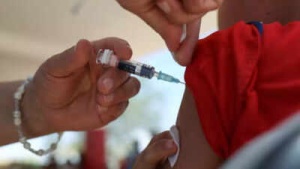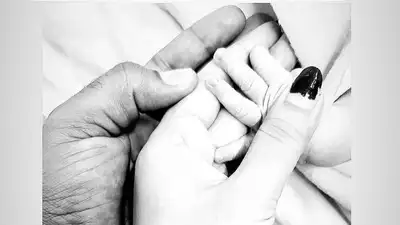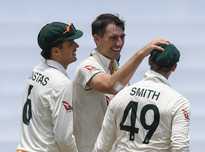The sudden demise of actress and model Shefali Jariwala, best known for her role in the early 2000s hit song "Kaanta Laga," has sent shockwaves through the entertainment industry. Reports indicate that she succumbed to a sudden cardiac arrest on the night of June 27th at the young age of 42.
While the official cause of death is still pending confirmation, preliminary information points towards sudden cardiac arrest, a critical condition characterized by the abrupt cessation of heart function. This tragic event underscores the fact that cardiac arrest is not exclusive to the elderly or individuals with pre-existing heart ailments. Often, the body emits subtle warning signals that, while seemingly insignificant, can prove life-saving if detected early.
Here are five frequently overlooked warning signs of sudden cardiac arrest:
Experiencing tiredness after a demanding day is normal. However, unexplained fatigue that arises without any apparent reason, feels unusually intense and prolonged, and persists despite rest, warrants attention.

The American Heart Association identifies unexplained fatigue as a potential early indicator of heart-related issues, particularly in women. Many individuals who have experienced cardiac arrest have reported debilitating fatigue in the days or even weeks leading up to the event. This fatigue may manifest as a profound lack of energy that gradually intensifies.
It's crucial to discern the nature of the fatigue. If the body feels unusually sluggish, even during simple activities such as walking short distances or climbing stairs, it may not be mere tiredness.
Contrary to popular belief, cardiac arrest doesn't always manifest as chest pain. More often than not, it begins with a subtle sensation of tightness, fullness, or general discomfort in the chest that can be difficult to pinpoint.
This is especially common among individuals under 50 and women, where the symptoms often differ from the classic "clutching-the-chest" portrayal. Some describe the sensation as a heavy weight pressing down or a belt tightening around the chest.
It's important not to dismiss these sensations as mere gas, muscle strain, or stress. If the feeling arises abruptly or intensifies with physical exertion, it could indicate that the heart is not receiving enough oxygen, a precursor to cardiac arrest.
An elevated heart rate after exercise or stress is a normal physiological response. However, if the heart starts beating unusually fast, too slow, or with skipped beats without a clear trigger, it’s essential to seek medical evaluation.

This condition, known as arrhythmia, is frequently observed in individuals before experiencing cardiac arrest. It can manifest as palpitations, characterized by a fluttering or pounding sensation in the chest. In some instances, it may remain asymptomatic and only be detected through medical testing.
Changes in heart rhythm during rest or sleep, particularly when accompanied by dizziness or shortness of breath, are particularly concerning. This could indicate a malfunction in the heart's electrical signals, a significant contributing factor to cardiac arrest.
Difficulty breathing is not always associated with lung problems. In numerous cardiac arrest cases, a peculiar sensation of breathlessness that seems disproportionate to the situation is observed.
This can occur even while sitting or performing light activities. It might feel like an inability to fully "catch" one's breath, despite the lungs appearing healthy. Some individuals may experience mild chest discomfort or lightheadedness concurrently.
From a medical standpoint, this occurs because the heart's diminished pumping efficiency leads to reduced oxygen supply, resulting in breathing difficulties. This symptom may appear days before a major cardiac event, presenting a crucial window for intervention.
While dizziness can stem from various benign causes, sudden and unexplained dizziness, particularly when accompanied by nausea, sweating, or paleness, should not be ignored.
Cardiac arrest often leads to insufficient blood flow to the brain. When the heart is unable to pump adequately, the brain quickly detects the deficiency. This results in dizziness, disorientation, and even temporary blackouts in some cases.
Many cardiac arrest survivors have reported experiencing fainting spells or feeling faint in the days preceding the event but failed to attribute it to heart problems. These episodes can serve as silent warnings, especially in individuals without a history of such occurrences.
[This article is based on available reports and health guidelines]
Newer articles
Older articles
 Gavaskar Calls for Kuldeep Yadav's Inclusion in Second Test Amid Bumrah Fitness Concerns, Cites Edgbaston Spin Advantage
Gavaskar Calls for Kuldeep Yadav's Inclusion in Second Test Amid Bumrah Fitness Concerns, Cites Edgbaston Spin Advantage
 Indian Astronaut Shukla Arrives at ISS, Ushering in New Era for Space Program
OR
India Celebrates as Shukla Reaches ISS, Advancing Ambitious Space Goals
Indian Astronaut Shukla Arrives at ISS, Ushering in New Era for Space Program
OR
India Celebrates as Shukla Reaches ISS, Advancing Ambitious Space Goals
 Rishabh Pant Revolutionizing Cricket, Says Greg Chappell
Rishabh Pant Revolutionizing Cricket, Says Greg Chappell
 Toxic Workplace Warning Signs: Spot the Red Flags Early
Toxic Workplace Warning Signs: Spot the Red Flags Early
 Global Immunization Crisis: Millions of Children at Risk as Vaccine Coverage Lags, Study Reveals
Global Immunization Crisis: Millions of Children at Risk as Vaccine Coverage Lags, Study Reveals
 Moto G54 Price Slashed in India: Check Out the Discounted Rates and Specs
Moto G54 Price Slashed in India: Check Out the Discounted Rates and Specs
 Indian Cricket Star Mukesh Kumar and Wife Divya Singh Announce the Arrival of Baby Boy
Indian Cricket Star Mukesh Kumar and Wife Divya Singh Announce the Arrival of Baby Boy
 IRCTC Launches AI Chatbot 'AskDisha 2.0' to Revolutionize Train Ticket Booking and Customer Service
IRCTC Launches AI Chatbot 'AskDisha 2.0' to Revolutionize Train Ticket Booking and Customer Service
 Cummins Lauds Australia's Dominant Start to WTC Campaign After West Indies Series Win
Cummins Lauds Australia's Dominant Start to WTC Campaign After West Indies Series Win
 Smith Targets Test Return After Innovative Baseball Cage Rehab in New York
Smith Targets Test Return After Innovative Baseball Cage Rehab in New York